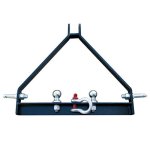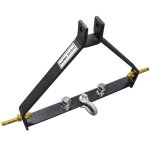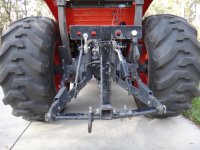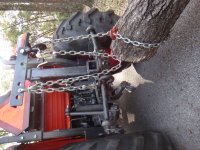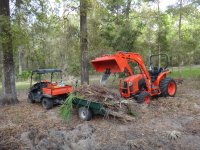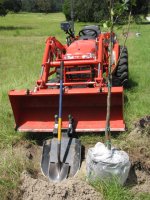Freep
Silver Member
Greetings, All,
As the title suggests, I am leery of government mandated emissions equipment. It isn't an ideological thing: I just remember the 70s. I worry that the Tier 4 engines will potentially require significant expense over time due to emissions equipment. I find myself leaning toward a smaller tractor simply to avoid potential Tier 4 issues. Am I being silly?
My goal is to purchase a tractor that will last forever if I take care of it and require as few additional expenditures and/or trips to the dealer as possible.
The tractor will be a CK series Kioti, so the actual size and weight will be nearly identical. And I frankly am not sure I need more than 25HP, but when I look at the cost of a CK2610 and then consider the relatively small increase in price to the CK3510SE, I start rationalizing: They are the same size and one wouldn't take up more space than the other... and so forth. Plus, everyone keeps telling me to buy a bigger tractor than I need. (Note: I probably only need a little sub-compact, so the 2610 is already an upgrade in that sense). I suspect y'all know this phenomenon very well. The only thing keeping me away from the 3510 is the Tier 4 engine, and I wonder if I'm making too big a deal of it. What do you think?
As the title suggests, I am leery of government mandated emissions equipment. It isn't an ideological thing: I just remember the 70s. I worry that the Tier 4 engines will potentially require significant expense over time due to emissions equipment. I find myself leaning toward a smaller tractor simply to avoid potential Tier 4 issues. Am I being silly?
My goal is to purchase a tractor that will last forever if I take care of it and require as few additional expenditures and/or trips to the dealer as possible.
The tractor will be a CK series Kioti, so the actual size and weight will be nearly identical. And I frankly am not sure I need more than 25HP, but when I look at the cost of a CK2610 and then consider the relatively small increase in price to the CK3510SE, I start rationalizing: They are the same size and one wouldn't take up more space than the other... and so forth. Plus, everyone keeps telling me to buy a bigger tractor than I need. (Note: I probably only need a little sub-compact, so the 2610 is already an upgrade in that sense). I suspect y'all know this phenomenon very well. The only thing keeping me away from the 3510 is the Tier 4 engine, and I wonder if I'm making too big a deal of it. What do you think?
